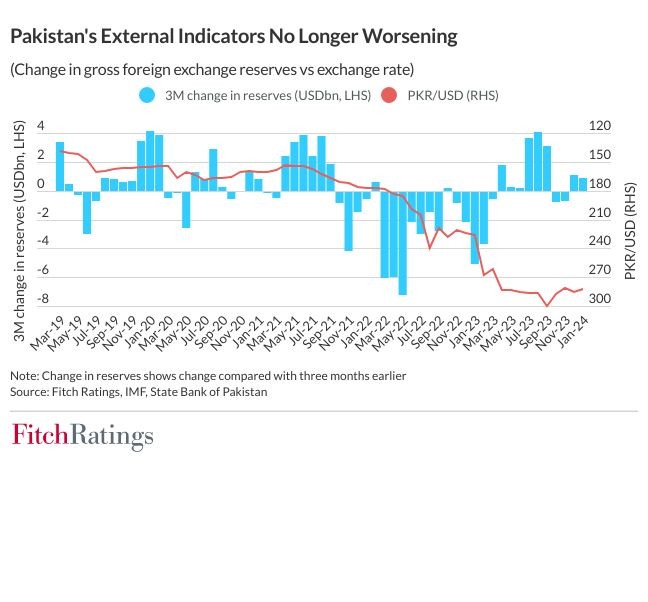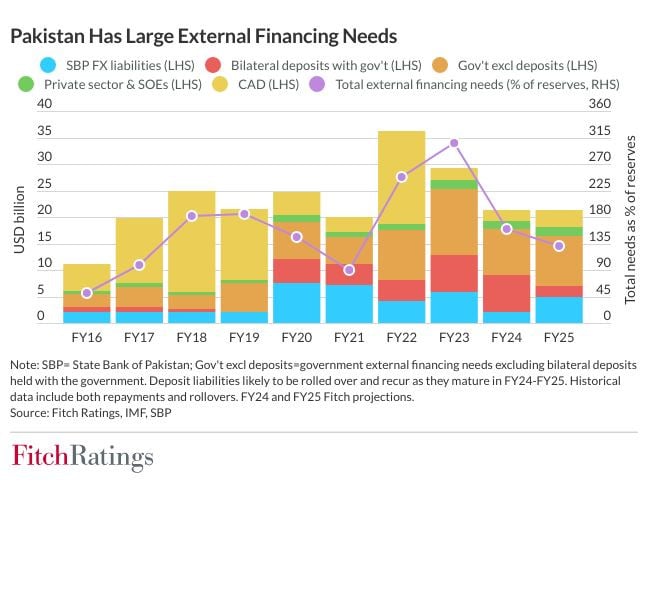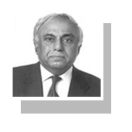Published in The Express Tribune on February 19, 2024
ISLAMBAD: The international credit rating agency Fitch has warned that the close outcome of the Feb 8 general elections and resulting near-term political uncertainty may complicate efforts to secure a financing agreement with the International Monetary Fund.
“This looks set to be a coalition of the Pakistan Muslim League-Nawaz and the Pakistan Peoples Party, despite the strong performance by candidates associated with Imran Khan’s Pakistan Tehreek-e-Insaf (PTI) in the elections,” the credit rating agency said in its report on Pakistan’s economy released on Monday.
The report stated that a new IMF deal, to succeed the Stand-By Arrangement (SBA) expiring in March 2024, was key to the country’s credit profile.
“We assume one will be achieved within a few months, but an extended negotiation or failure to secure it would increase external liquidity stress and raise the probability of default.”
It noted that while Pakistan’s external position had improved in recent months, with the State Bank of Pakistan reporting net foreign reserves of $8 billion as of Feb 9, 2024, up from a low of $2.9 billion on Feb 3, 2023, “nevertheless, this is low relative to projected external funding needs, which we expect will continue to exceed reserves for at least the next few years”.
“We estimate Pakistan met less than half of its $18 billion funding plan in the first two quarters of the fiscal year ending June 2024 (FY24), excluding routine rollovers of bilateral debt.”

It added that the “sovereign’s vulnerable external position means that securing financing from multilateral and bilateral partners will be one of the most urgent issues on the agenda for the next government”.
“Negotiating a successor deal to the SBA and adhering to the policy commitments under it will be critical to most other external financing flows, not just from the IMF, and will strongly influence the country’s economic trajectory in the longer term.”
Fitch highlighted that finalising a new IMF deal was likely to be challenging. “The current SBA is an interim package and we believe any successor arrangement would come with tougher conditions, which may be resisted by entrenched vested interests in Pakistan.”
Nonetheless, it added, “we assume any resistance will be overcome, given the acute nature of the country’s economic challenges and the limited alternatives”.
It warned that if the political instability continued, discussions with the IMF would be prolonged, assistance from other multilateral and bilateral partners delayed, or implementation of reforms hampered.
“We believe a government will assume office and engage with the IMF relatively quickly, but risks to political stability are likely to remain high.”
The report also warned that public discontent could rise further if the PTI remained sidelined as the election revealed continued strong public support for the party.
It highlighted the government’s “poor record” of completing the IMF programmes, saying that less than half of its 24 IMF programmes had disbursed more than 75% of the funding available.

“However, there has been fair progress on targets under the current SBA. Moreover, we perceive there is stronger consensus within Pakistan on the need for reform, which could facilitate the implementation of a successor arrangement.”
It further warned that policy risks could rise again over time if external liquidity pressures eased, either as a result of initial reform successes or developments outside Pakistan, such as a substantial drop in oil prices.
“This could lead to the renewed build-up of economic and external imbalances. We believe Pakistan’s external finances will remain structurally weak until and unless it develops a private sector that can generate greater significantly more export income, attract FDI or reduce import dependence.”




